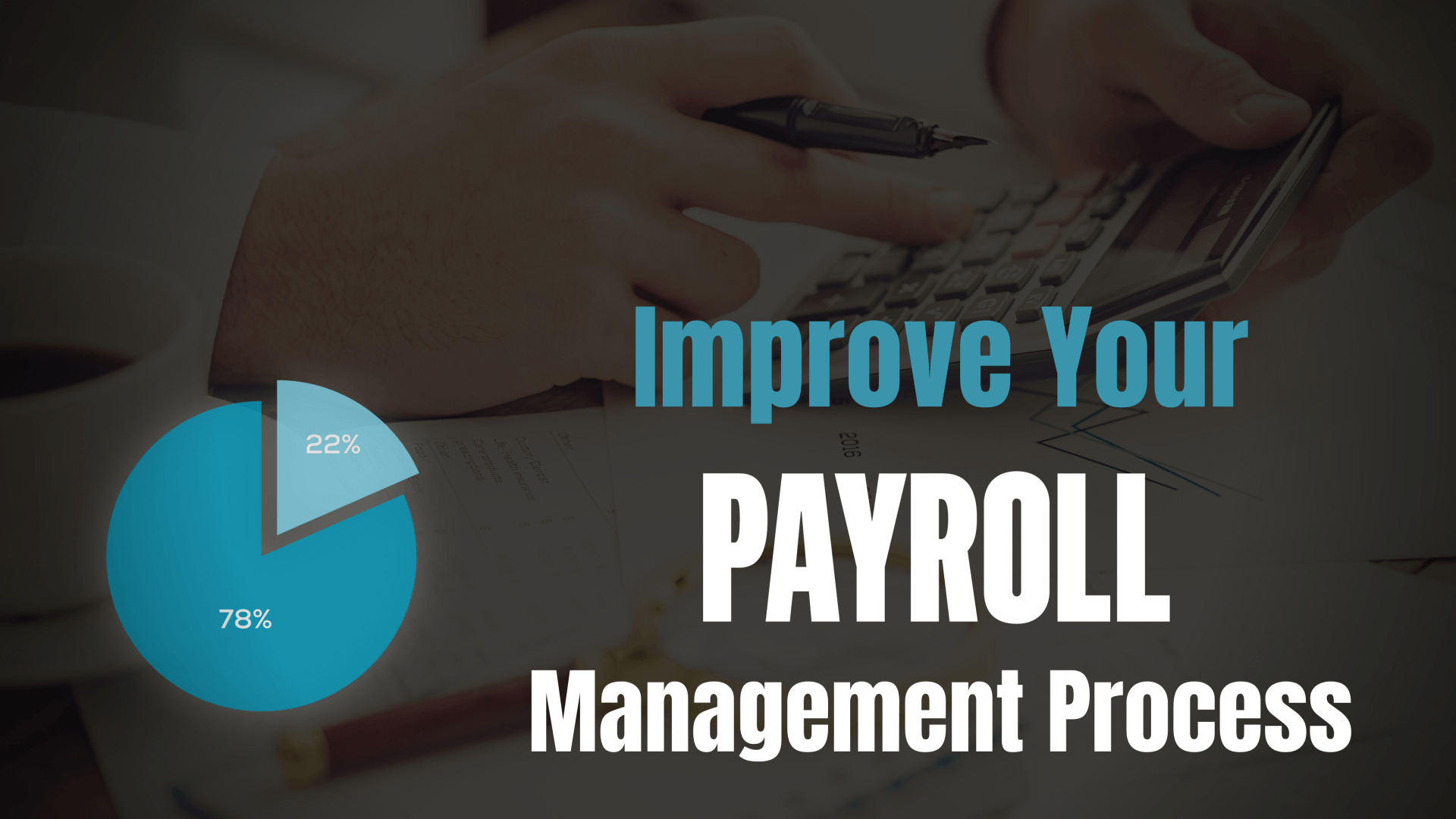
Payroll can prove to be a challenge for many businesses. A task that is so regular should be something that runs efficiently, but unfortunately that doesn’t always happen.
As businesses grow, payroll management can also grow to be frustrating. Does being on the phone for hours trying to fix issues with your payroll company sound familiar? Or maybe you need a more robust payroll platform in order to be more productive? Maybe you have the technology, but you’re left figuring out how to use it on your own and not using it to its full capability? Time and attendance, GL integration, reporting, and other record keeping can quickly become a frustration.
Here’s Some Helpful Ways to Create a More Efficient Payroll Management Process
1. Outsourcing to Save Time and Money
Many companies do not have the resources or bandwidth to manage the payroll process. Outsourcing your payroll is a cost-effective alternative to having your own payroll team. Depending on how in depth your payroll needs are, from direct deposit, W-2 processing, compliance, timekeeping, tax filing, reporting, 401(k) administration and other tasks, you can have access to both payroll technology and the support you need.
You might not have the necessary time needed to stay on top of all the laws and regulations to maintain compliance, or the knowledge of the best payroll platform solution for your business, or finding the best structure for your payroll process. Outsourcing your payroll to SimcoHR can give you peace of mind when you just don’t have the time or the finances to handle these tasks on your own. SimcoHR can also integrate, beyond payroll, other services within HR and employee benefit operations to manage and streamline your systems resulting in increased productivity.
2. Simplify and Streamline Your Payroll System
There are several benefits to using a payroll platform. You can decrease the risk of human error; you can make it easier to control and maintain time and attendance that would allow you to discover trends that could lead to cost saving opportunities.
Streamlining your payroll system is a solution to improving your payroll management process. A professional overseeing your payroll can also advise you on ways to improve your existing system. You can accomplish this through technology. Not only will your payroll process be more manageable than a paperless system, but it will save you a significant amount of time. A paperless payroll process utilizing an online platform will offer a secure way of handling your payroll data.
3. Is Your Payroll Software Up to Date?
When is the last time you investigated payroll software options? Upgrading your platform can allow you to be more productive at your business. If you find that you’re spending too much time on payroll, then it’s worth looking into. There are a variety of platforms now available to fit different sized businesses and their needs. From basic payroll platforms for small businesses, to large robust platforms that integrate benefits and HR to help streamline your business.
Spending less time processing your payroll, with increased accuracy in entering in data and processing is a win! Technology alone may not be your answer, but when it’s backed by a service that can walk you through getting the most out of your technology, or teaching you how to use it, it can make managing your payroll a much better experience.
4. Simplify Your Pay Schedules
Weekly, bi-weekly, bi-monthly, hourly and any combination of pay schedules can be difficult to manage. If you are a business who has to stay on top of several pay schedules, consolidating everyone to one type of pay schedule is more efficient, easier to maintain and creates less room for errors. SimcoHR can assist with this.
5. Payroll Education and Continuous Learning
Continuous learning is vital for any business, and any industry. Payroll management is no exception. There are always technological advances to stay on top of, or new rules and regulations that are always changing. It’s a best practice to educate and train yourself on an ongoing basis about the latest things happening that could either make you compliant, or simply more productive.
6. Payroll and Compliance
A big part of managing payroll is tax filing. It can be extremely costly and devastating to a business who fails to be in compliance with laws and regulations or meet required deadlines. Be sure your payroll processes have incorporated into it your state and federal payroll, and tax regulations and apply any necessary changes.
SimcoHR can help you with all of these tasks by being your full-service payroll company. They also have several other platforms available in HR, employee benefits, and risk management that all work together to help your business. Contact SimcoHR at (585) 750-3246 for a free consultation and discover how streamlining your day to day management tasks can save you time and money.
You might also be interested in reading about “Costly Mistakes - Failing to Remit Payroll Taxes and Retirement Plan Contributions on Time” available here.
Sign up for our newsletter.




